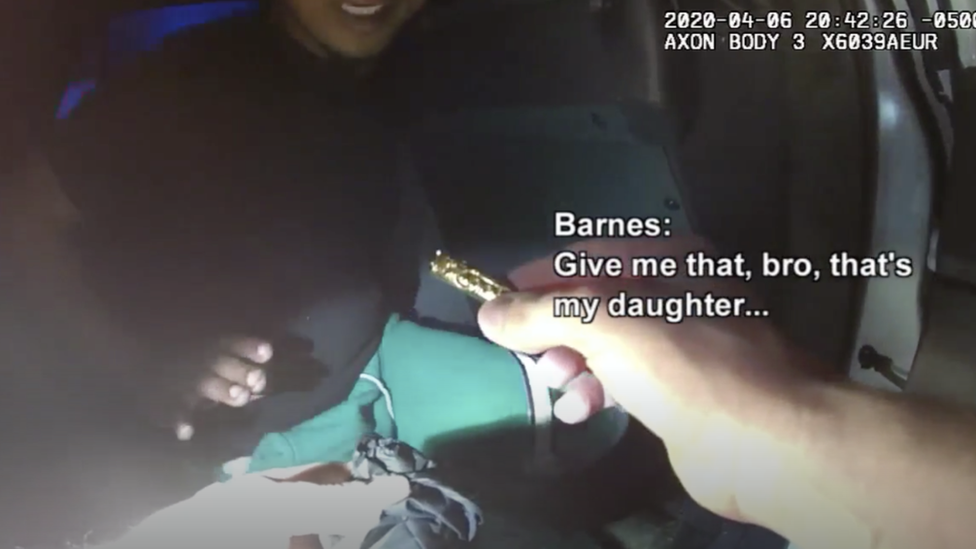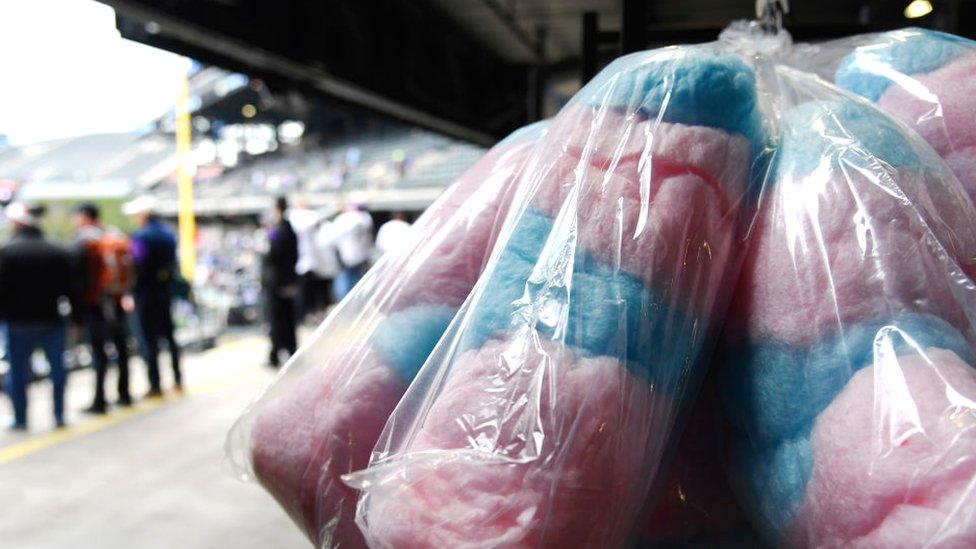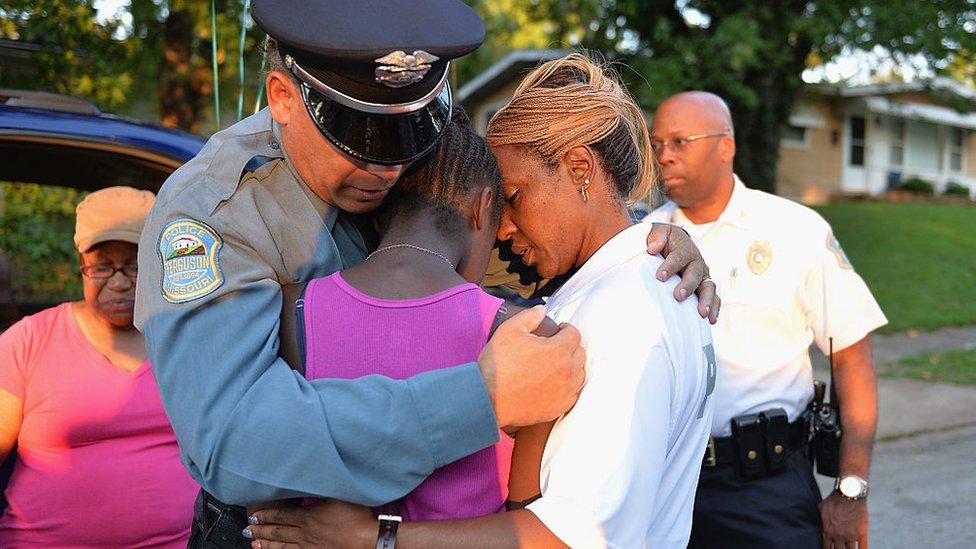Illinois police face lawsuit over drug testing a toddler's ashes
- Published

Still from police body camera footage showing the incident with Mr Barnes
An Illinois man is suing the city of Springfield, alleging police unlawfully took an urn with his daughter's ashes and said it tested positive for meth.
New body camera footage shows Dartavius Barnes handcuffed and upset as officers take the urn from his car during a traffic stop on 6 April 2020.
In his lawsuit, Mr Barnes said police "desecrated" the ashes of his two-year-old daughter, who died in 2019.
Police have denied wrongdoing, according to court documents.
Local media outlets WICS and WRSP obtained the body camera footage last week.
Mr Barnes filed the lawsuit against the city and officers involved in October. He alleges that the officers unlawfully seized the sealed urn containing his daughter Ta'Naja's ashes, opened it and spilled some of the ashes while testing it for drugs.
Ta'Naja died of neglect and starvation in February 2019. Her mother, Twanka Davis, was sentenced to 20 years in prison after pleading guilty to first-degree murder.
In a court filing, lawyers for the officers said that the police "were acting within the scope of their employment and under colour of law".
"Defendants are entitled to qualified immunity as their conduct was justified by an objectively reasonable belief that it was lawful," the documents said.
Qualified immunity is a legal doctrine that protects government employees, including police, from lawsuits stemming from decisions made while on the job.
What happened when a city disbanded its police force
Mr Barnes was pulled over last year for allegedly speeding and disobeying traffic signs.
In the body camera footage, Mr Barnes can be seen co-operating with police as he is placed in handcuffs, sitting and waiting in the back of the squad car while officers inspect his car.
When asked by officers if he has anything in his car before they search, he says he has some weed. Nearly 80g of marijuana was found in Mr Barnes' vehicle - almost three times the legal possession limit in Illinois.
Officers then show Mr Barnes the urn - a metallic object about the size of a finger - and say it has tested positive for meth or ecstasy.
"No, no, no, bro that's my daughter," an agitated Mr Barnes says. "Give me that, bro. That's my daughter. Please give me my daughter, bro. Put her in my hand, bro. Y'all are disrespectful, bro."
Allow YouTube content?
This article contains content provided by Google YouTube. We ask for your permission before anything is loaded, as they may be using cookies and other technologies. You may want to read Google’s cookie policy, external and privacy policy, external before accepting. To view this content choose ‘accept and continue’.
An officer then shuts the car door to confer with the other officers.
"Apparently this is his daughter's ashes," one of the officers says, adding that the substance inside had tested positive for meth.
He later decides not to retest the contents of the urn, and returns the ashes to Mr Barnes' father, who was also at the scene.
"The test, it field tested for meth," the officer says to Mr Barnes.
"I knew that was impossible... that's my daughter," Mr Barnes replies, and thanks the officer for returning the urn.
Mr Barnes was released and given a court notice for illegal possession of cannabis.
He is seeking compensatory damages and a trial by jury, which has been set for August 2022.
Field drug tests are not always reliable.
According to a list compiled by the Washington Post, these kits have mistakenly detected illegal substances in chocolate chip cookies, deodorant, billiards chalk, flour and motor oil.
A 2016 ProPublica investigation found that cheap roadside drug tests "routinely produce false positives" that result in tens of thousands of Americans being wrongfully jailed.
Related topics
- Published9 June 2020

- Published29 November 2018

- Published21 May 2021
